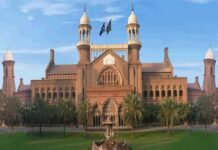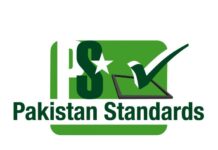In times of political manoeuvrings and the understandable focus on the Covid-19 crisis, it is important to remind ourselves that we still need an economic system that provides prosperity to our people.
Here are my top ten most important things for the government of Pakistan to get right in order to have sustained economic growth. This is by no means an exhaustive list. I acknowledge that I have had to leave some really important issues out.
The government should have a clearly defined understanding of the problems in these areas, develop critical key performance indicators (KPIs) to track its own performance, and provide periodic progress updates to the public to ensure better accountability.
- Introduce market-based reforms in the energy sector.
The government needs to introduce market-based reforms in the energy sector – for both electricity and natural gas – based on a transfer of control over the distribution infrastructure to provinces.
The government should also bring market-based reforms in the petroleum sector. Currently, the government of Pakistan sets the wellhead price, the retail price, refining margins, as well as investor returns, all of which incentivises rent seeking behaviour and poor resource allocation. This has also caused Pakistan to have the highest electricity rates in the region at 12 cents per kilowatt-hour (kWh) as well as reduced annual gross domestic product (GDP) growth by 2%.
The government has to move away from actively participating in markets to a role of a regulator of markets through empowered institutions that encourage competition.
- Establish world class science based academic institutions in partnership with Chinese.
These knowledge spillovers will be critical to support long-term productivity growth. We also need the government to support e-learning and upgrade the primary and secondary school curriculum to include problem solving (logic/mathematics), critical thinking/reasoning (science/philosophy), creative expression (art and humanities) and principle-based decision making (values/ethics).
- Price water usage and stop agriculture support prices, especially for sugar cane.
About 90% of water in Pakistan is used to generate only about 5% of the GDP. And GDP productivity is only $1.5 per cubic metre of water, versus the global average of $8 per cubic metre. Water is already scarce – we have less than 1000 cubic metres per capita in Pakistan – yet we are producing water thirsty, low value-added crops which can easily be imported, and yet at the same time we are importing water value added crops like vegetables and legumes. Fun fact about Pakistan: agricultural productivity actually increases during droughts due to lower “market failure” as farmers switch to more water productive crops
- Increase the tax net through proper documentation whilst reducing taxes on the formal sector.
This will help access to formal financing for the small and medium enterprise (SME) sector, which currently accounts for only 5% of bank financing. The government also needs to push for the elimination of the practice of double book-keeping, as well as encouraging greater use of technology-based solutions, which will lead to more productivity gains.
In addition, the government of Pakistan must take immediate and meaningful steps to increase credit to the private sector – such as through tax incentives. Private sector credit in Pakistan is currently at just 18.8% of GDP, versus 50% in India. More credit to the private sector will have a multiplier impact on GDP growth.
- Diversify and expand the export base through new products, new services, and new markets.
Our exports have not changed much since the Indus Valley Civilisation traded cotton and grain with Mesopotamian empires over 5,000 years ago. Cotton textiles and foods still account for over 70% of Pakistan’s exports. We need the government to create specialised industrial zones that will be based on manufacturing of goods to export but for new products and markets (such as engineering, chemicals, electronics and food products).
Also, the government needs to support the development of formalised information technology services export sector – IT consultancies, business process outsourcing (BPO), etc. – through a cluster approach. No country has ever gone from developing to developed without exports. and we need to target having an exports-to-import ratio of 2, from the current 0.5.
- Encourage the development of a digital infrastructure in order to bridge the digital divide and democratise learning and market access.
Every 10% increase in broadband penetration increases GDP growth by 1.2%. Fixed-line broadband penetration – the most reliable and high-quality kind – is still only 0.25% of the population. Over 50 million people live in areas that have 3G or 4G cellular coverage but still do not have access to a smartphone. This needs to change.
- Introduce market-based reforms and investment in the transport industry, especially high-speed rail, port infrastructure and intra-city transport.
Currently, about 92% of all land transport is through trucks, which is among the highest in the world. Poor logistical efficiency leads to a loss of competitiveness for local industries, poor city planning, environmental degradation, and poorer living standards.
- Encourage local and international tourism.
The potential for large scale employment and foreign exchange inflows through tourism is enormous. Plus, it gives the country a softer image and allows for more exchange of ideas and capabilities. There is a tremendous opportunity in this sector, given Pakistan’s natural, historical, religious, and cultural assets. Yet a total of 17,823 tourists visited Pakistan in 2019 compared to 1.9 million visiting Sri Lanka, 10 million in India, and 39 million in Thailand.
- Reduce the propensity for real estate to be used to park black money.
This artificially increases asset prices, thereby reducing the ability for people to buy homes through mortgages. Pakistan has one of the highest home price-to-annual income ratio at 11:1 versus 8.35 for the UK, even though interest rates are much lower there. Loans to bank employees are more than the entire mortgage market of the country. Also, the government should consider federal insurance schemes to kick start mortgage-based financing, which will substantially increase private sector credit and create demand for many ancillary local industries.
- Invest in environmental and social assets.
Pakistan is the 7th most vulnerable country to the effects of climate change and has one of the lowest forest cover, currently at 2% of our land area. Furthermore, the health impact of a poor environment is large due to poor water and air quality-related medical issues, especially amongst the most vulnerable segments of the population. About 75% of medical issues in children in Pakistan are due to water- and airborne diseases.
In addition, greater involvement of women in the labour force will also drive economic growth. The female labour force participation rate in Pakistan is 18% versus 59% in Thailand
























Who’s gonna pay for all this fucking recommendations. We are broke as fuck by debt payment
Loll
While this appears best recepie under the circumstances to progress, we also require practical solution to address current adversities. Any improvement without having competent leadership seems dream to me. We have to acknowledge that masses can not brought change alone and require support from all state organs. May Allah SWT bless Pakistan
Great list, but totally unrealistic whilst non developmental expenditure takes priority.
If I could do one thing, it would be female education, as will produce fewer and healthier next generation
Its a good start. We need educated prople to make recommendations and if not all but few works , it can bting a great change. A very good start.
This is from a world bank report pakistan@100thar came out last year.
All said by the author of this article very true and realizable preposition. Please ask yourself. Yourself and your elders have developed, over a period of time, industrial/business empire in Pakistan by virtue of their smart work,competence and sincerity to their business. But alas you people have had been at the helm of affairs, somehow or the other, in the GOP but regretfully failed to deliver meaningfully. Pakistani governance remained led astray due to incompetence, wrong priorities, indifferent attitude to the most of the governance issues. This is pathetic.
All great ideas…
But how do we get into the knowledge intensive industries?
Many of our universities are second rate. Student study pointless subject like sociology, human resources, political science.. and the list goes on.
Sindh probably has more ghost schools than real schools. South Punjab is little better.
We need to address these key issues first.